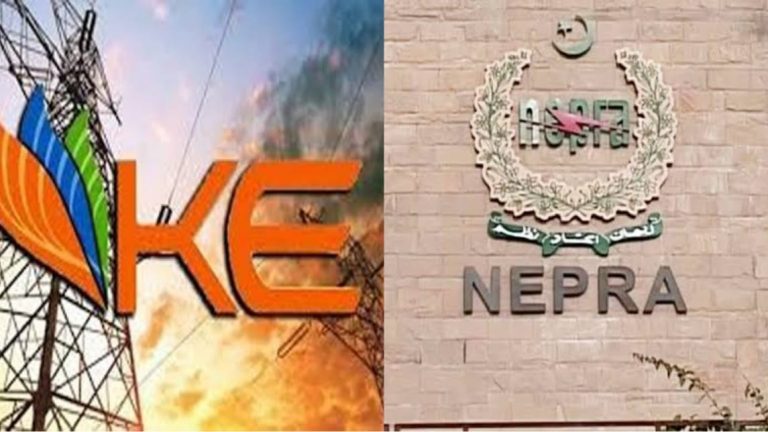Gauhar lashes out at KE’s arbitration to halt transaction?
At the time, the arbitration process has begun to gain steam, he objects arbitration process which appears to halt the transaction between KE and Chinese firm SEP
Aftab Ahmed
In a surprising move, the former Chief Executive Officer (CEO) K-Electric and advisor to Prime Minister on Power Tabish Gauhar has lashed out at the arbitration process of the utility that may prevent the sale of KE to Chinese firms SEP amidst allege rumors find alternate buyers of the utility.
This move is also said to be a conflict of interest and a move to derail the entire process. Gauhar has written a letter to different ministries soon after the visit of the Saudi Business Tycoon to Pakistan.
During the meeting, the Saudi Business tycoon had held meetings with key government officials including Prime Minister Imran Khan who had assured to facilitate the privatization of KE to a Chinese firm.
The KE and Chinese firm SEP have been making struggling since 2016 to materialize the transaction. But the debt issue with SSGC and NTDC had to create hurdles. Now, Prime Minister had assured the Saudi Business Tycoon to resolve these issues so that transactions between KE and SEP could be materialized.
Yet, just when the arbitration process has begun to gain steam, in surprising contrast to the PM’s personal direction, Special Assistant to the Prime Minister on Energy, Tabish Gauhar has written a letter to the Privatization Commission highlighting objections to the under-consideration arbitration terms of references (TORs).
Different quarters say that intervention of close aid of premier who had already worked on different positions in KE may derail the progress made so far in resolving the payables and receivables disputes between Sui Southern Gas Company, National Transmission and Dispatch Company (NTDC), Ministry of Finance (MoF) and K-Electric (KE).
This issue potentially erodes the financial viability of both public and private sector entities and whose origins date back almost a decade recently moved towards resolution on Prime Minister Imran Khan’s intervention.
Reports emanating from Islamabad, indicate efforts by “vested interests” to derail the progress made so far in resolving the payables and receivables disputes between Sui Southern Gas Company, National Transmission and Dispatch Company (NTDC), Ministry of Finance (MoF), and K-Electric (KE).
This issue potentially erodes the financial viability of both public and private sector entities and whose origins date back almost a decade recently moved towards resolution on Prime Minister Imran Khan’s intervention.
Known to retract on positions, Gauhar, former Chairman and CEO of the utility, had earlier claimed to be staying away from the arbitration process on account of his prior affiliation with K-Electric which could create a conflict of interest. The SAPM had recently also denounced from his earlier position on a commercially driven load-shedding policy that was pioneered during his tenure at K-Electric.
Beyond the obvious conflict of interest, the timing of Gauhar’s intervention may also indicate a calculated intent to dent the progress made by the Ministry of Finance, Ministry of Energy, and the Privatization Commission in ironing out this growing circular debt and transaction of KE to SEP.
Sources close to the matter suggest that it appears to be a key part of Gauhar’s “agenda” to prevent the sale of KE to SEP take place amidst allege rumors of Gauhar’s closeness to alternate buyers of KE circulating in the capital.
Tabish’s letter follows on the heels of a two-day visit by Sheikh Abdulaziz Hamad Aljomaih, head of one of the largest business groups in Saudi Arabia and part of the KES Power consortium that owns majority shares in KE.
Hamad Aljomaih held meetings with Prime Minister Imran Khan as well as President Dr. Arif Alvi, Hafeez Shaikh, Mohammed Mian Soomro as well as Omar Ayub Khan to seek resolution of challenges impeding the sale of K-Electric to SEP including the long-standing issue of payables and receivables involving KE and several government entities.
During a televised interview, Aljomaih appreciated the Government of Pakistan’s assurances to expedite approvals and resolve issues that were compromising KE’s financial sustainability and affecting Karachi’s growth prospects including payment of nearly PKR 280 billion unpaid dues to KE and the Shanghai Electric Power’s (SEP) acquisition of KE’s 66% shares.
The visit appeared to galvanize the previously sluggish progress. The stakeholders are holding meetings almost every day to ensure the consensus of all parties especially in light of the PM’s personal oversight. On the other hand, Tabish Gauhar, who was left out of Aljomaih’s call-on list, has lashed out with this letter toeing a completely different line and approach.
The circular debt dates back to before 2012 when Tabish Gauhar was still the Chief Executive Officer of K-Electric and remained unresolved even in 2015 when Gauhar abruptly parted ways with KE. It has continued to balloon since then and has implications for Karachi’s power supply as both SSGC and CPPA-G / NTDC have indicated an unwillingness to sign a Gas Supply Agreement (GSA) and Power Purchase Agreement (PPA) respectively while their receivables remain unsettled. Valuation of this circular debt between the entities varies based on the source of information, with SSGC and NTDC together claiming nearly PKR 400 billion in receivables from KE.
KE on the other hand has countered that SSGC and NTDC amounts are “unduly” inflated with markup while on a net principal basis, KE stands to receive PKR 80 billion from various federal and provincial government entities. All entities acknowledge the strain on their financials on account of these outstanding payments which take a toll on investment ability and routine operations.
This circular debt has also proven to be the main roadblock to the Shanghai Electric Power (SEP) acquisition of a majority stake in KE despite their commitments of accelerated investments across the power value chain which stand to benefit both Karachi and Pakistan. The deal has been floundering since SEPs initial Expression of Intent in 2016 due to the issue of payables and receivables remaining unaddressed.
In spite of this, to date, SEP has reaffirmed its commitment to see the transaction through, provided the government addresses certain prerequisites including resolution of KE’s circular debt.
Building on the successive improvements in Pakistan’s Ease of Doing Business Rankings and cognizant that the entry of a large-scale global utility player is sure to send a welcome signal to international investors and position Pakistan as an investment destination, the federal government has been making all-out efforts to woo and reassure foreign investors.
With the GOP and its different subjects such as the MoE, MoF, and the Privatization Commission now appearing to be on one page, Gauhar’s letter goes against the progress made by others to resolve an issue that he himself was pivotal in creating, beckons the question of the motive behind it.








